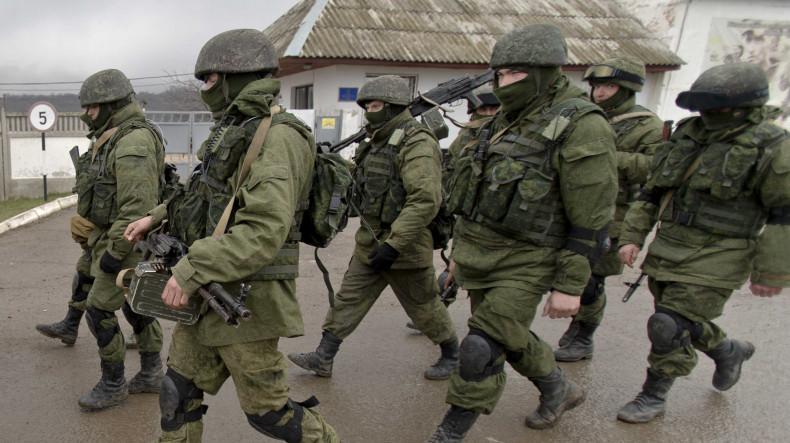Pentagon urges Russia to clarify troop movement intentions on Ukrainian border

Russia’s intentions with regards to its troop movement on the border with Ukraine remain unclear to the United States, and Washington calls upon Moscow to specify them more clearly, Department of Defense Spokesperson John Kirby told reporters on Tuesday, TASS reported.
"The intent is not completely clear, and I believe our State Department colleagues yesterday called on Russia to make their intentions known," he said.
"We continue to see Russian forces arrayed along the border with Ukraine in Crimea specifically," Kirby added. "It's also difficult for us to speak to intent right now. It is concerning and we continue to monitor it."
He evaded a direct response to a question of whether, in Washington’s opinion, Russian troops could be deployed in eastern Ukraine.
"I try to avoid, if I can, speaking to specific operations here, particularly operations of of another military," the spokesman said.
On Monday, a US Department of State spokesperson said his country was ready for cooperation with Moscow regarding the situation in eastern Ukraine. At the same time, in his opinion, the United States believes that reports about the movement of Russian troops on the border with Ukraine and in Crimea were credible. The spokesperson called upon Russia to refrain from any actions that might lead to escalation.
In the past few days, Western nations have repeatedly expressed concern about Ukraine’s reports of alleged Russian military buildup at its borders. Kremlin spokesman Dmitry Peskov said that other countries should not find movements of military units in Russian territory worrisome, because Russia does not pose a threat to other stats, including Ukraine. He also stressed that the events in Donbass were Ukraine’s internal conflict, and Russian troops have never taken part in it.
The situation in Donbass worsened at the end of February, with fire exchanges involving the use of mortars and grenade launchers registered every day. The conflicting sides blamed the aggravation of the situation on each other. Russian President Vladimir Putin on March 30 held a video conference with his French counterpart Emmanuel Macron and German Chancellor Angela Merkel. Among other things Putin expressed concern over Ukraine’s escalation of tensions in Donbass.
 Latest news
Latest news Latest news
Latest newsGreece Plans to Exclude Turkiye from Future Defense Contracts
20.Feb.2026
U.S.-Based Mars Launches Major Investment Project in Kazakhstan
20.Feb.2026
Parliamentary Elections 2026 in Armenia as a Geopolitical Referendum
20.Feb.2026
Russia and Ukraine Fail to Reach Agreement in Geneva
19.Feb.2026
The South Caucasus in U.S. Foreign Policy: Implications of High-Level Visits for Russian and Chinese Regional Aspirations
18.Feb.2026
Ukraine Imposes Personal Sanctions on Belarusian President Alexander Lukashenko
18.Feb.2026
72% Against the Authorities: Economic Dissatisfaction Hits Record Levels in Turkiye
17.Feb.2026
Bulgaria Strengthens Defense: First American Stryker Vehicles Delivered
17.Feb.2026
Moscow Criticizes Plans to Build a U.S.-Backed Nuclear Power Plant in Armenia
16.Feb.2026
Washington expects Tbilisi to strengthen ties amid regional changes
15.Feb.2026

 28 Feb 2026
28 Feb 2026









